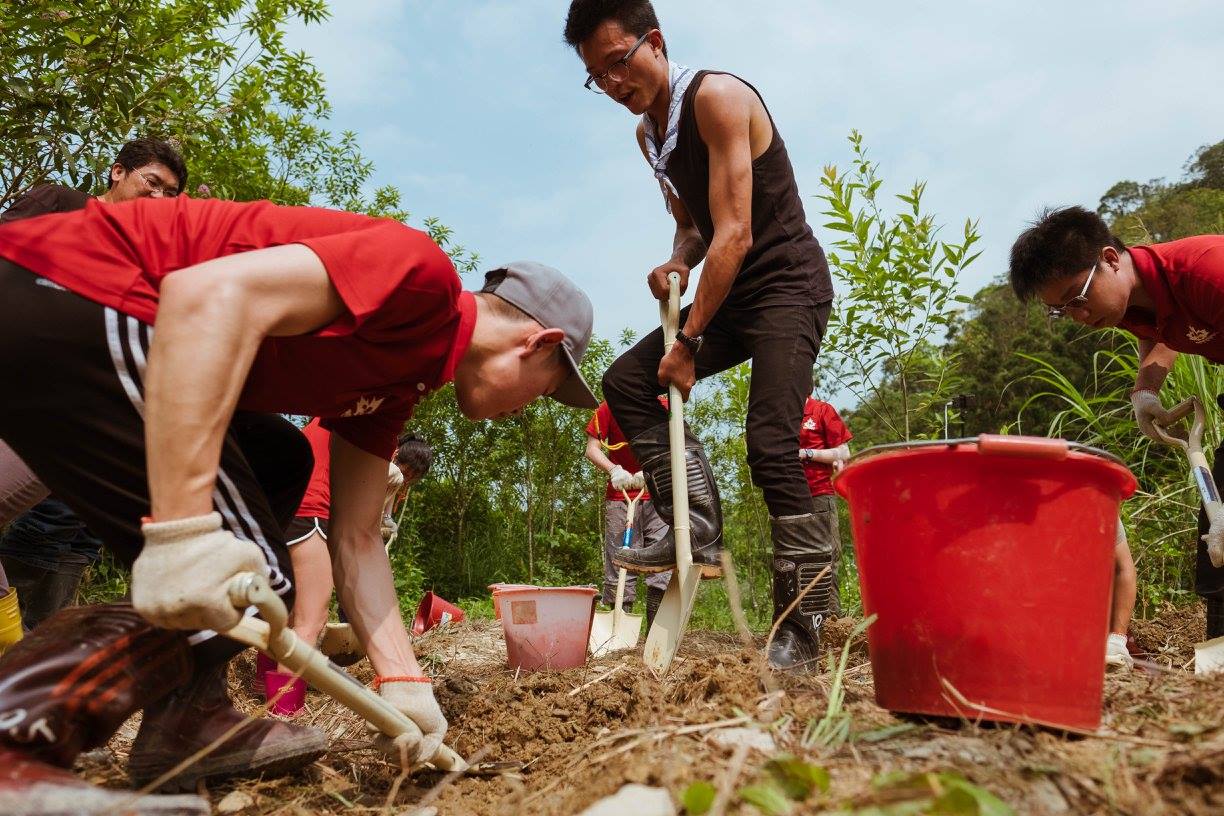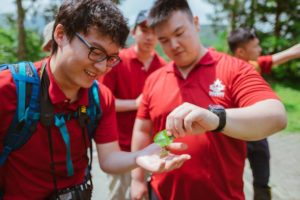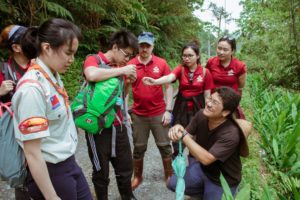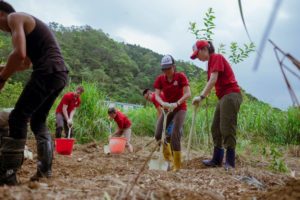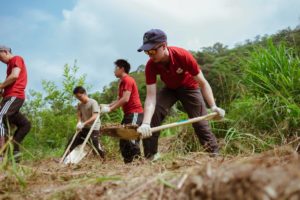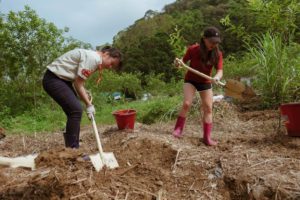By Brian Asin
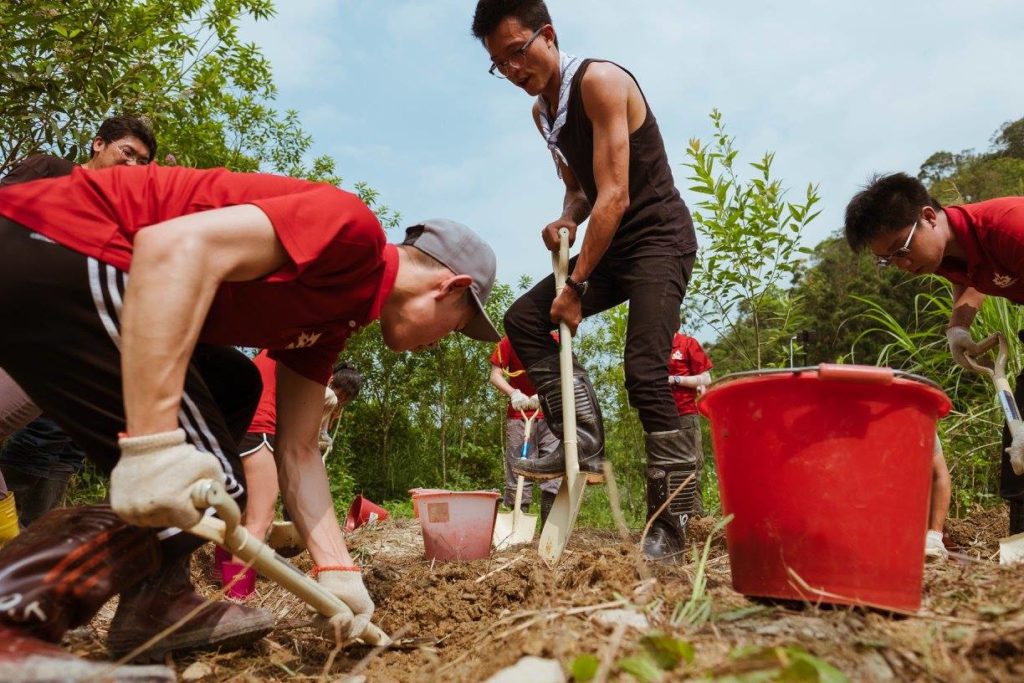
We do environmental service projects when we visit other countries, because it’s a great opportunity for our Rover Scouts to follow the Scouting Method—we learn by doing.
This year for Good Turn Week, a contingent from our Rover Scout Group is in Taiwan collaborating in a number of service projects with youth across their country.
For the first environmental project of our trip, we partnered with the Society of Wilderness, the largest environmental education and conservation NGO in Taiwan. Founded in 1995 by Scouts, their mission is to protect and rehabilitate Taiwan’s ecosystems. Along with some local Rovers, we joined Society of Wilderness at their Shuanglianpi Environmental Education Centre in the Northeastern part of Taiwan.
Working with the Society of Wilderness was a great opportunity because their values align so closely with ours. We are both striving to involve youth in active improvement of the environment, while providing excellent learning opportunities.
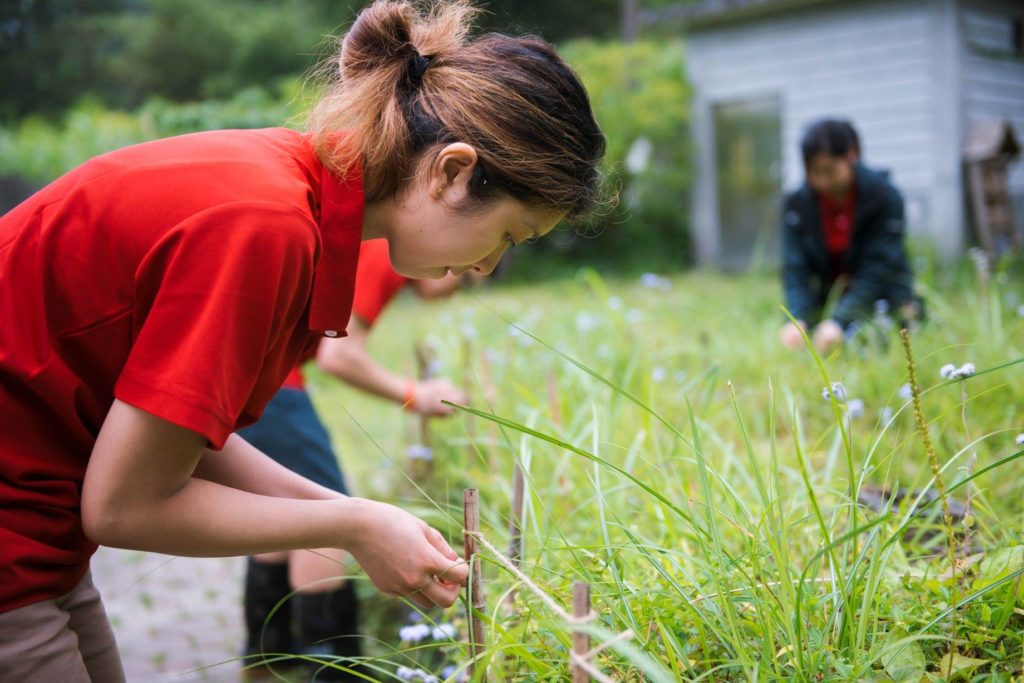
A few of us spent the first afternoon learning about ecological conservation in the most fun way possible—with our boots on, in the pond, learning about invasive species. We helped weed out the non-native Brazilian waterweed (Egeria densa) that harms the habitat of the very similar rigid hornwort (Ceratophyllum demersum), an endangered species native to the Taiwanese wetland. We also put up a small fence around a pond with many frogs to signify to guests that this is not a place to crawl through and take pictures. Thinking back, these first activities allowed us to begin to understand the labour and time required to protect and maintain an ecosystem.
That evening, we went on an ecotour and learned more about the many different species that live in the wetland. Our group was amazed at the flora and fauna’s diversity, and it was hard not to be when the frogs sounded like seals and the leaves tasted like cinnamon. Perhaps the biggest curiosity was the story of the snake species evolved to only eat Taiwanese snails with counterclockwise shells. When running a service project, it’s important to know your purpose. Interacting face to face with these fascinating creatures allowed us to know exactly why and who we were doing this for.
I was particularly fascinated at how sensitive these frog populations are to changes in chemistry of their ponds. Unfortunately, historical drainage for agricultural purposes and, more recently, the construction of a resort have either affected the quality of the water or has dried out major parts of the vast wetland. The loss of major plant and bug populations created a perpetual decrease in the amount of wetland wildlife’s ability to grow.
Upon arriving at Shuanglianpi Lake, we were taken to a section at its edge, which had been an area revitalized thanks to the hard work of the Society of Wilderness. We saw with our very own eyes, that after over a decade, natural species have returned to the wetland.
It was only after learning about the beauty and struggles of the unique ecosystem, we grabbed our shovels and had our turn digging out an area to be revitalized. Our guides explained why we do this by hand rather than by machine. In their own words, it’s important that people learn firsthand about the ecosystem and experience how hard it is to preserve and bring back an ecosystem. This is a mentality that we definitely adopted when working on our project. It’s also something that aligns very closely with the Scouting method of learning by doing. Our contribution here was just a small part of an important and continuous process that the Society of Wilderness is concerned with. We hope our efforts will become flourishing wetlands where native species like the rigid hornwort and the Taiwanese tree frog can once again inhabit.
Finally, all of our efforts were made possible because of the collaboration between the organizations that strive to achieve the same goals. The staff here at Shuanglianpi are extremely hardworking and they have certainly inspired us. To keep this project going, we donated a sum of money to the Society of Wilderness. We hope to continue supporting them and their vision to bring back the ecosystem and to increase environmental awareness.
Through this project, I learned the easiest and most impactful way to practice environmental stewardship is to get physically involved and experience it first hand.
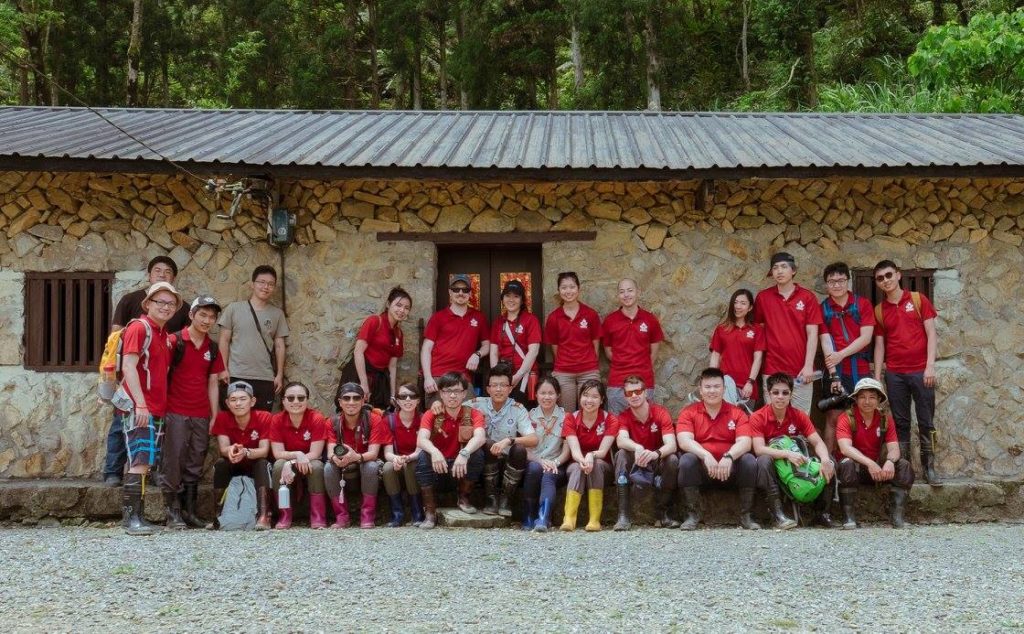
Follow us on our 6th international service project, and keep an eye out for our daily vlogs!
